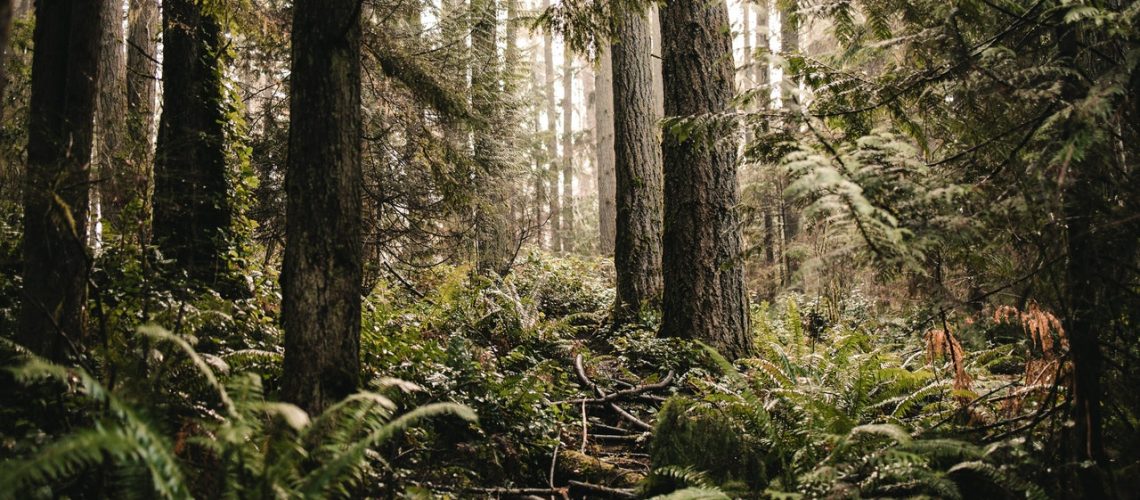The most important thing that you need to know about Colton Running is that he believes fiercely in the value of time spent outdoors. He’s not wrong; studies show that time spent outdoors can improve memory, boost your immune system, may help prevent nearsightedness, and might even make us better people. But he recalls that even in rural areas of Washington, where he grew up, there were kids who spent very little time outside.
Colton is the one-man team behind Natural Learning Northwest, a forest school located in Maple Valley, Washington in beautiful Whatcom County. While he has no academic education background, he is a National Geographic certified educator and has more than six years of experience in teaching Forest School. Before launching Natural Learning Northwest, he helped his mom run a Forest Kindergarten, and worked as an educator with Nature Nuts, an outdoor preschool program.
He wanted to be a National Park Service ranger after he graduated high school, but discovered that the Park Service required a higher education degree. Colton knew that academics weren’t for him, so he set his sights on bringing kids into nature.
The Natural Learning Northwest curriculum is play-based and child-led. This means that as children explore the forest and stream beds and alpine areas around them, they are the ones who decide what they will study. This gives children a sense of control over the experience and allows them to gravitate towards subjects that interest them. Colton says that this doesn’t necessarily mean that any subject is left out; he recalled moments when kids playing in the woods suddenly realized that they were doing math, a subject they thought was beyond their grasp. Kids may study rainfall, natural drainage systems, stream ecology, botany, and more. The lack of rigid curriculum allows this kind of diversity of study, and also makes the program accessible to many different learning styles. Colton even provides notebooks for kids that are more academically oriented, so that they can make diagrams and take notes.
Colton says that structured learning is necessary for some things, but that it should be balanced with less structured, child led, experiential learning.
Natural Learning Northwest is unique because of the age range that they focus on. Colton says that there are a lot of programs working with young children, and working with highschool aged kids, but very few work with what he calls “middle childhood ages,” ages 6-13. He wants to address the needs of this age group and ensure that children have continuous access to the outdoors, even as they age out of programs that cater to young children.
He notes that his programs offer other benefits to children. He cites emotional education as one of those benefits, as kids learn to face failure, learn to take risks, and learn to experience and process frustration. He also notes that there are benefits to social education as well; kids learn to work as part of a team, how to work with other kids from different age groups and backgrounds. They take on leadership experiences, and become empowered to perform independent learning.
Independent learning is an important skill. It allows kids to develop a passion for learning, is flexible enough to serve kids with different types of intelligence, and helps kids learn to focus on the process instead of just the goal. These are skills that some kids might struggle to learn in educator-led academic settings.
When asked whether he faces resistance from parents, Colton said that the thing parents struggle with is control. He says that safety may be a concern, but also that parents are very invested with the way that their children grow and develop, and that relinquishing some of that control can be very difficult.
The kids definitely seem to enjoy their time in the program. During his time at Nature Nuts, Colton estimates a retention rate of 80%, and notes that as students aged out of that program, they were often replaced by younger siblings. Some of his current students are on year six of learning with Colton in outdoor settings!
He also notes that the proportion of students from the public school system is dropping as kids return to in-classroom education. He wants parents to know that it’s okay to take your child out of school one day a week for an outdoor experience. It won’t set them back, and it’s something that you have the right to do.
Colton notes that the foundations of his programs are in educational theory. He gives credit to the Reggio Emilia approach, an educational philosophy that favors self-directed, experiential learning. He also builds on the work of Dr. Montessori, who developed a system of education that used mixed age group classrooms, and eschewed the use of grades and tests. Waldorf Steiner favored an educational environment that used small class sizes and promoted creativity and the learning of practical life skills.
By noting these predecessors, Colton wants to help people understand that this approach to education works. That it is beneficial to not just children, but to families, communities, and society as a whole.
The Forest School program provides four hours of outdoor education per week, and runs from September through June, on a schedule similar to traditional schools. The Forest School programs continue through rainy or snowy weather, allowing students to experience many faces of the forest.
Natural Learning Northwest also offers a camp program during the summer months, offering a four day program of day camp sessions that represents an entire month of the Forest School program squeezed into four days.
Natural Learning Northwest is a cause-driven, for profit business. They are a 1% For The Planet member, and are working on becoming certified as a B-Corp.If you’re interested in learning more about these programs and getting your kids outdoors, you can contact Natural Learning Northwest for more information.




